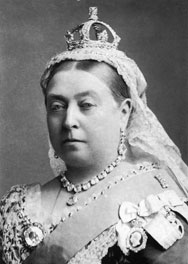Oval Tub – Diamond Jubilee
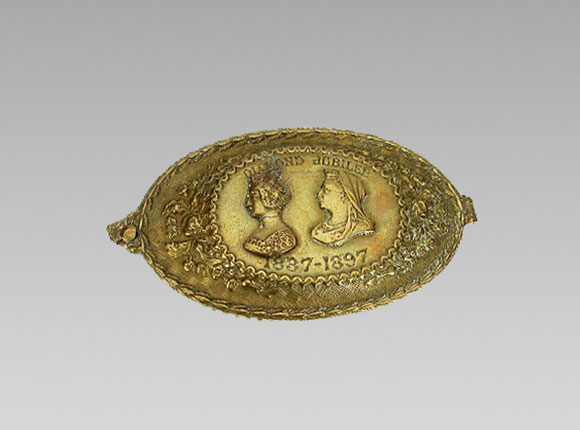
Needle Case (photograph courtesy of Bunny's Place)
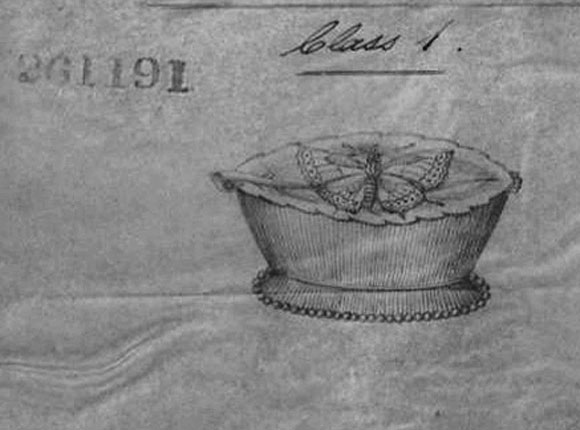
Design Representation
Design Details
Needle Case Type: |
Figural (assume diamond mark on needle case matches this design registration) |
Patent/Registered to: |
W. Avery & Son - Redditch |
Patent/Design Representation #: |
Ornamental Class1: Metal: #261191 |
Patent/Design Registration Date: |
March 16, 1872 |
Location of Patent/Design Registration: |
The National Archives (TNA) - Kew, UK |
Reference #: |
TNA Representation - BT 43/31/261191
TNA Register - BT 44/2/261191 |
Dimensions: |
7 x 3.8 x 2.3 |
Material: |
Brass |
Name Variations: |
W. Avery & Son - Redditch |
Other Variations: |
a) Butterfly Box - Oval Tub
b) Oval Tub - Kaiser Wilhelm I Bust
c) Oval Tub - Ladies Portrait Bust
d) Oval Tub – Scott’s Monument
e) Oval Tub - Scott’s Portrait Bust |
Additional Photographs
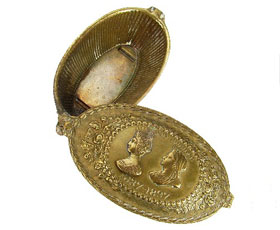
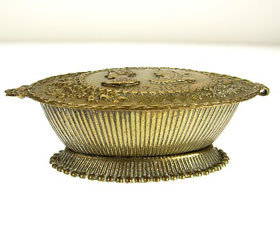
Top open and side view
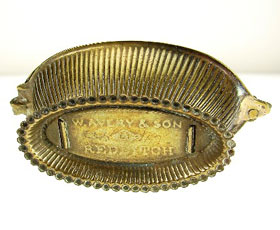
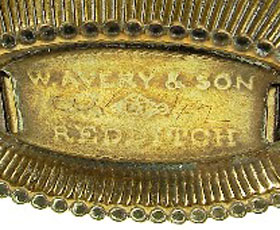
Bottom and signature detail
Facts
The first diamond jubilee in British history was celebrated on June 22, 1897. As the date approached a number of different names were
suggested to commemorate the 60 year reign of Queen Victoria. A combination of “Jubilee” and “Diamond” was finally selected based on the
60th wedding anniversary symbol. The coat of arms of the United Kingdom during Queen Victoria’s reign is shown below.
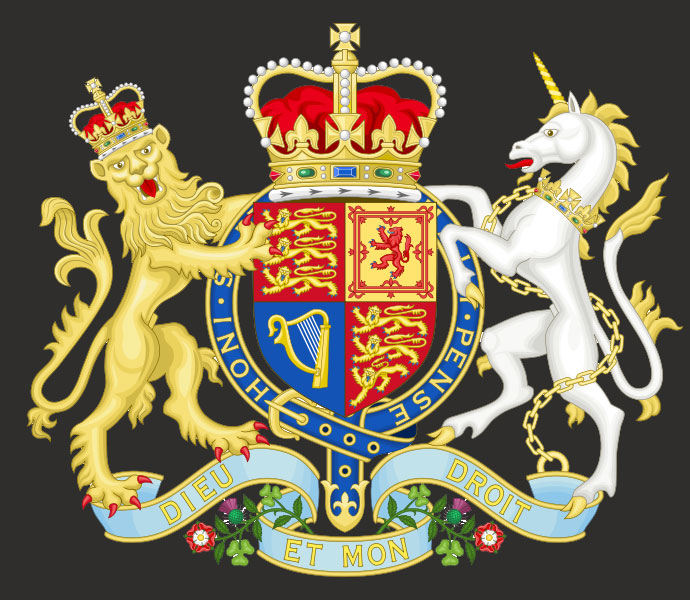
History
Queen Victoria was born in 1819. She was the daughter of Prince Edward and the German Princess Victoria of Saxe-Coburg. Her
father died when she was 1 year old and Victoria inherited the throne at age 18 after her father’s three elder brothers had died without an
heir. In 1840, at age 21, she married her German cousin Prince Albert of Saxe-Coburg. Victoria and Albert had nine
children. After Albert died of typhoid fever in 1861, Victoria went into mourning and wore black for the remainder of her life. Here
is a painting of Queen Victoria on her coronation day.
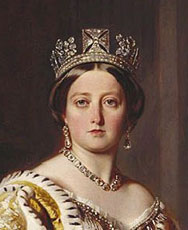
Miscellaneous
Queen Victoria’s reign lasted 63 years making her the longest reigning British monarch and the longest ruling female monarch in
history. The period in which she reigned became known as the Victorian Era. During this time the British Empire was at its peak and
was renowned for its industry and culture. Queen Victoria died in 1901, three years after William Avery. Avery, who lived from
1832-1899, was a true product of the Victorian period. The photograph below shows Queen Victoria in her later years.
